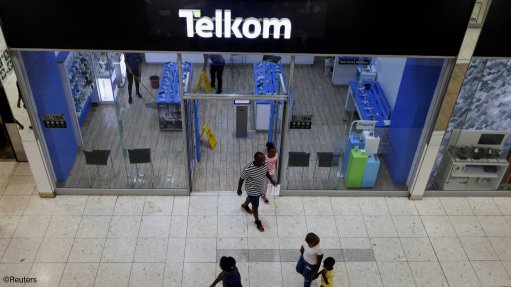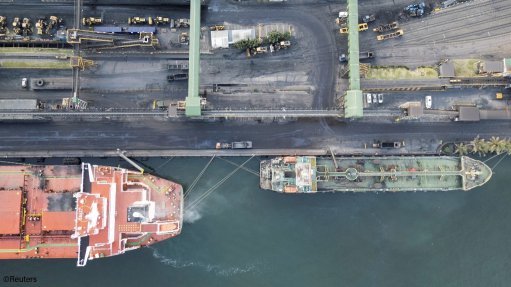Quo vadis?
I have in previous columns pretty much avoided writing about how stupid the South African government has been with regard to the current situation. It is almost beyond belief that a government, any government, should place itself in a position where the people it is supposed to look after and serve are so badly treated.
I’m not sure if you remember, about one-and-a-half years ago, when government had a bad discussion and at which it brought to the attention of the people of this country what was going to happen to us all. The impression was given that government had some sort of master plan in terms of which we would all find ourselves in a new situation whereby something different would happen that would be of benefit to us all. There was a hint that it was going to be slightly difficult for everybody to swallow, but the definite recommendation was that it was going to be of benefit to all. Certainly, this is the impression that I got, and there is no doubt that this was the impression that a great number of other citizens also had.
Then, when loadshedding intensified, there was the suggestion that it would be fairly short lived and certainly not three times a day every day. To even suggest that the people of South Africa and that South Africa as a country would be placed in this kind of condition was unthinkable. Just to give an example (not that examples necessarily assist in any way), when I worked for Eskom, the idea that a portion of the State-owned electricity utility’s grid would be without power for any length of time was unheard of. I can clearly remember having to attend meetings at which senior staff were asked to account for situations in which the power had been disconnected for more than one hour. On one occasion, Port Elizabeth had its power disconnected for 24 hours. It was national news.
I was very much part of that power outage, and I felt a keen sense of failure, even though there was no reason to criticise any Eskom staff member for its occurrence. It was just one of those things. But it happened, and for years afterwards it was referred to as The Port Elizabeth Power Outage. Oh, how I long for those days.
The point is that, at the time of that outage, Eskom was very seldom disconnected. This was because Eskom employees didn’t regard disconnection from the grid as something which should be accepted. Eskom staff were well paid, but they delivered value for money. They had a worldwide reputation for not making mistakes and for being dedicated to their jobs. They took pride in their work.
If you have a situation whereby Eskom staff are paid way beyond the level that they should be paid and they are not delivering the service they are supposed to, then you have the situation which we have at present. There are no consequences for not doing your job; in fact, employees get ridiculous bonuses, despite underperforming. There seems to be no shame in failing; in fact, it almost seems as if they are lionised for skimming.
Quo vadis?
The obvious solution would be to get rid of the current batch of bad apples, but this is not as simple as it sounds. The corruption runs deep and high, and we will have to locate some people who want to restore service. At the moment, it seems that there are those who are benefiting from the outages. If we can follow the money to find out who benefits the most, we may be able to figure out who to get rid of and set about implementing a plan to replace the whole management structure.
There is an election coming, which offers a glimmer of hope. If we are to use the election, it must be used within the next year. If the election is not used by the people to display a change of attitude to this government, there is a considerable time before the election can be used to change the situation again. It is almost unthinkable that no change will occur, and that government considers the present situation acceptable.
The current government structure is based on an election process which clearly does not work. This may sound unacceptable, but it is a fact. It may also sound unbelievable, but we have to accept a new type of government structure.
Article Enquiry
Email Article
Save Article
Feedback
To advertise email advertising@creamermedia.co.za or click here
Press Office
Announcements
What's On
Subscribe to improve your user experience...
Option 1 (equivalent of R125 a month):
Receive a weekly copy of Creamer Media's Engineering News & Mining Weekly magazine
(print copy for those in South Africa and e-magazine for those outside of South Africa)
Receive daily email newsletters
Access to full search results
Access archive of magazine back copies
Access to Projects in Progress
Access to ONE Research Report of your choice in PDF format
Option 2 (equivalent of R375 a month):
All benefits from Option 1
PLUS
Access to Creamer Media's Research Channel Africa for ALL Research Reports, in PDF format, on various industrial and mining sectors
including Electricity; Water; Energy Transition; Hydrogen; Roads, Rail and Ports; Coal; Gold; Platinum; Battery Metals; etc.
Already a subscriber?
Forgotten your password?
Receive weekly copy of Creamer Media's Engineering News & Mining Weekly magazine (print copy for those in South Africa and e-magazine for those outside of South Africa)
➕
Recieve daily email newsletters
➕
Access to full search results
➕
Access archive of magazine back copies
➕
Access to Projects in Progress
➕
Access to ONE Research Report of your choice in PDF format
RESEARCH CHANNEL AFRICA
R4500 (equivalent of R375 a month)
SUBSCRIBEAll benefits from Option 1
➕
Access to Creamer Media's Research Channel Africa for ALL Research Reports on various industrial and mining sectors, in PDF format, including on:
Electricity
➕
Water
➕
Energy Transition
➕
Hydrogen
➕
Roads, Rail and Ports
➕
Coal
➕
Gold
➕
Platinum
➕
Battery Metals
➕
etc.
Receive all benefits from Option 1 or Option 2 delivered to numerous people at your company
➕
Multiple User names and Passwords for simultaneous log-ins
➕
Intranet integration access to all in your organisation


















